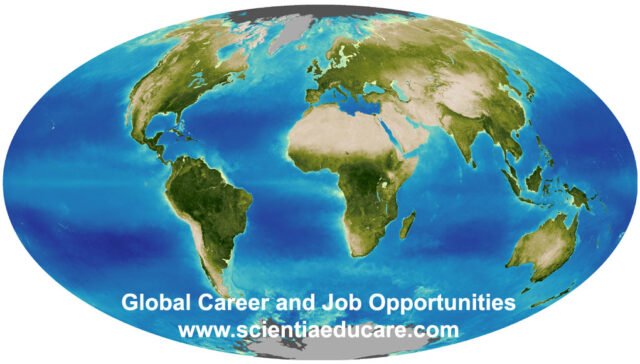Embarking on a career with the World Bank offers a unique opportunity to contribute to global development and poverty alleviation. This article provides an in-depth look at the various job prospects available worldwide, application tips, and educational pathways to prepare for a successful career at the World Bank.
- World Bank job application process
- How to get a job at the World Bank
- World Bank recruitment tips
- World Bank consultant opportunities
- World Bank internship requirements
Table of Contents
- Introduction to the World Bank
- Job Opportunities at the World Bank
- Application Process and Tips
- Educational Pathways for a World Bank Career
- Top Universities Offering Relevant Courses
- Further Reading
1. Introduction to the World Bank
The World Bank is an international financial institution dedicated to reducing poverty and supporting development by providing financial and technical assistance to developing countries. Working at the World Bank means being part of a diverse team committed to making a positive impact on a global scale.
2. Job Opportunities at the World Bank
The World Bank offers a variety of career paths for professionals across different fields. Some of the key job prospects include:
- Economists: Analyze economic data and provide policy recommendations.
- Financial Analysts: Manage financial resources and assess project viability.
- Project Managers: Oversee development projects from inception to completion.
- Social Scientists: Study the social impact of projects and policies.
- Environmental Specialists: Ensure projects comply with environmental standards.
- Legal Advisors: Provide legal counsel on international law and agreements.
These roles are available in various locations worldwide, reflecting the global reach of the World Bank’s initiatives.
3. Application Process and Tips
Applying for a position at the World Bank involves several steps designed to identify the most qualified candidates. Here’s a breakdown of the process:
- Online Application: Submit your application through the World Bank’s careers portal. Ensure that your resume and cover letter are tailored to the specific role you’re applying for.
- Assessment: Qualified candidates may undergo assessments to evaluate their technical skills and competencies.
- Interview: Successful candidates are invited for interviews, which may be conducted virtually or in person.
- Selection: The final selection is based on a comprehensive review of your application, assessment results, and interview performance.
Application Tips:
- Follow Instructions Carefully: Ensure that you complete all parts of the application accurately. Incomplete applications may not be considered.
- Highlight Relevant Experience: Emphasize experiences that align with the job requirements.
- Be Concise and Clear: Present your information in a clear and concise manner. Avoid unnecessary jargon.
- Prepare for Interviews: Research the World Bank’s projects and values. Be ready to discuss how your skills and experiences make you a good fit for the role.
For more detailed insights, refer to the World Bank’s official application guidelines.
4. Educational Pathways for a World Bank Career
A strong educational background is crucial for a career at the World Bank. Degrees in fields such as economics, finance, international relations, public policy, and environmental science are highly valued. Pursuing advanced degrees or certifications can further enhance your qualifications.
5. Top Universities Offering Relevant Courses
Here is a list of top institutions around the world that offer programs aligned with careers at the World Bank:
- Harvard University (USA): Offers programs in economics, public policy, and international development.
- University of Oxford (UK): Known for its programs in economics and international relations.
- London School of Economics and Political Science (LSE) (UK): Specializes in economics, finance, and social sciences.
- Massachusetts Institute of Technology (MIT) (USA): Renowned for its economics and finance programs.
- HEC Paris (France): Offers top-tier programs in finance and international business.
- University of Cambridge (UK): Provides programs in economics and public policy.
- Bocconi University (Italy): Known for its finance and economics courses.
- University of California, Berkeley (Haas School of Business) (USA): Offers programs in finance and international development.
- ESSEC Business School (France): Provides courses in finance and management.
- University of St. Gallen (Switzerland): Known for its programs in economics and finance.
These institutions are recognized for their rigorous curricula and strong focus on areas pertinent to the World Bank’s mission.
6. Further Reading
To gain a deeper understanding of careers at the World Bank and related fields, consider exploring the following resources:
- World Bank Careers: The official careers page provides comprehensive information on current openings and application procedures.
- Applying to Jobs at the World Bank: An Insider’s Guide: This article offers valuable insights into the application process.
- Top 100 Universities for Careers in Banking: A ranking of universities that excel in finance education.
- Best Degrees, Majors & Courses for Banking & Finance Careers: An overview of educational paths beneficial for a career in finance.














